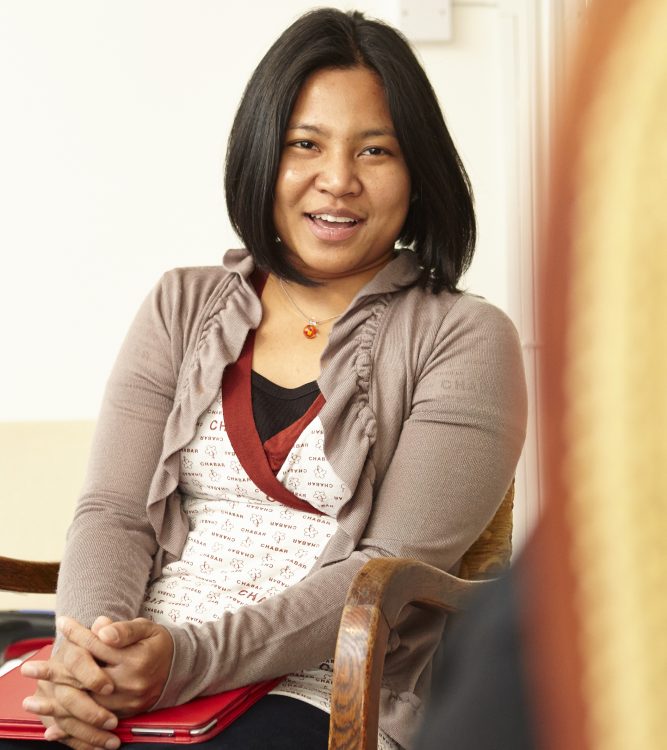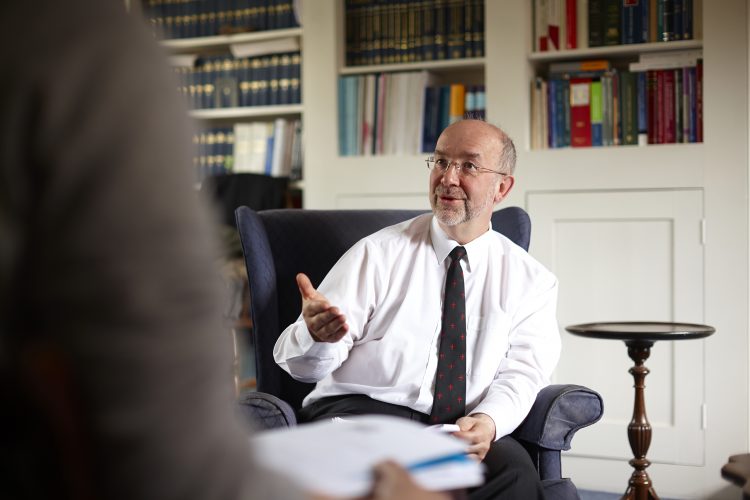Jeevi – Law
Journey to Oxford
I was born and raised in Wolverhampton, which is (in my eyes) the heart of the West Midlands, and I was educated at a state grammar school.
Why did you choose to study your course?
At A-level, I studied History, Politics and English but I didn’t want to pursue any of these subjects at degree level. I reflected on what I liked about those subjects, which was critically evaluating arguments and analysing perspectives to identify solutions. I wanted a subject that incorporated context, but was simultaneously looking to the future, and I thought Law was a perfect fit for me.
What is your favourite thing about studying Law?
My favourite thing about my subject is how varied it is. Although you have to wait until third year to choose modules; your first two years cover a mix of public and private law. I love how you can analyse situations through so many different lenses. Because we study the subjects in depth, tutorials allow you to delve into fundamental or complex questions of law and debate your ideas with tutors or students alike!
How is your course taught?
What I like about our course is how independent it is. Our main form of learning is through reading for our essays, in preparation for tutorials. We also attend lectures, which are great if you want to go over some concepts you didn’t quite understand in your reading, or if you’d like another perspective on a topic. On average, you have 3 essays and therefore 3 tutorials a fortnight, so not that many contact hours, and hopefully no 9am’s! It might seem like a lot, but it is definitely manageable once you adjust to the workload. The shift from school to university is a big jump, especially since most people have never studied Law before, so everyone is in the same boat.
Describe your average Oxford day…
I start my day at breakfast in the Hall. You live on site for your first and third years, and you pay for your breakfasts and dinners as part of this rent! It means that you save time by not having to cook, and that you can eat with all your friends. At around half 10, I’ll head to the library and get started with my work for the day. Our College library is one of my favourites, and is open 24 hours.
I love to change up my study space, so after lunch, I will study at one of the main University libraries – there are so many to choose from! Then, I’ll meet one of my friends for a coffee and go on a walk – we have lots of green spaces near College, such as Christ Church Meadows and University Parks – a walk is great to switch off from work.
We only have five contact hours a week, so depending on the day, I’ll head to my tutorial. By this point, it’s time for dinner back at College, where my friends and I debrief about our days. Unless I’m in an ‘essay crisis’, I try to avoid working in the evenings, and I’ll relax or go out with my friends.
Why did you decide to apply to St Edmund Hall? What is your favourite thing about it now you’re here?
I was reallocated to Teddy Hall before my interview, and I’m so glad that I was! My favourite thing about the Hall is the real sense of community that you feel right as you walk through the Porters’ Lodge. Our College site is quite small, which means that you’re always bumping into people and can see lots of friendly faces. We’re known for being a more chilled college, which means that we have amazing social events, societies, and things to look forward to. There truly is something for everyone, and the welcoming nature of the College has made it feel like a home away from home.
What helped you prepare for the admissions process?
The most important piece of advice I could give is that you don’t need work experience in the legal sector to have a chance to get in. I didn’t have any when I wrote my personal statement, but there are so many other ways to show your interests. For example, reading the law section of newspapers, certain books that interest you and listening to online lectures.
No one is expecting you to have a comprehensive understanding of the law, but try and find an area or topic that interests you. If, at interview, you are asked about your personal statement, your enthusiasm will shine through!
For Oxford, you are required to sit the LNAT – I would recommend looking at the practice papers and creating your own essay questions in preparation. Then, before interviews, I would go through your personal statement and think about potential questions they might ask, and also practice ‘thinking out loud’ in preparation for the case-style questions that may come up. Remember, they are not looking for the correct answer, but how you think and form an argument!
What was the biggest misconception you had about studying at Oxford before you came?
I thought that I wouldn’t fit in, being a woman of colour from the Midlands. However, you will find people that are like you, or those who can validate your experiences. For example, regular socials with BAME students through Teddy Hall’s BAME society introduced me to friends outside my subject and in different years. Wherever you choose to study, you will come across so many people from all walks of life, and Oxford is no different. However, there is support available through joining different societies at a University level, and getting to know people as you settle in!
What would you tell your 17-year-old self about applying to and studying at Oxford/St Edmund Hall now?
Just do it. Even if there’s the slightest chance that you want to apply and are interested, go for it! You have nothing to lose, and the application process itself is a great experience, regardless of the outcome.
Where next?

